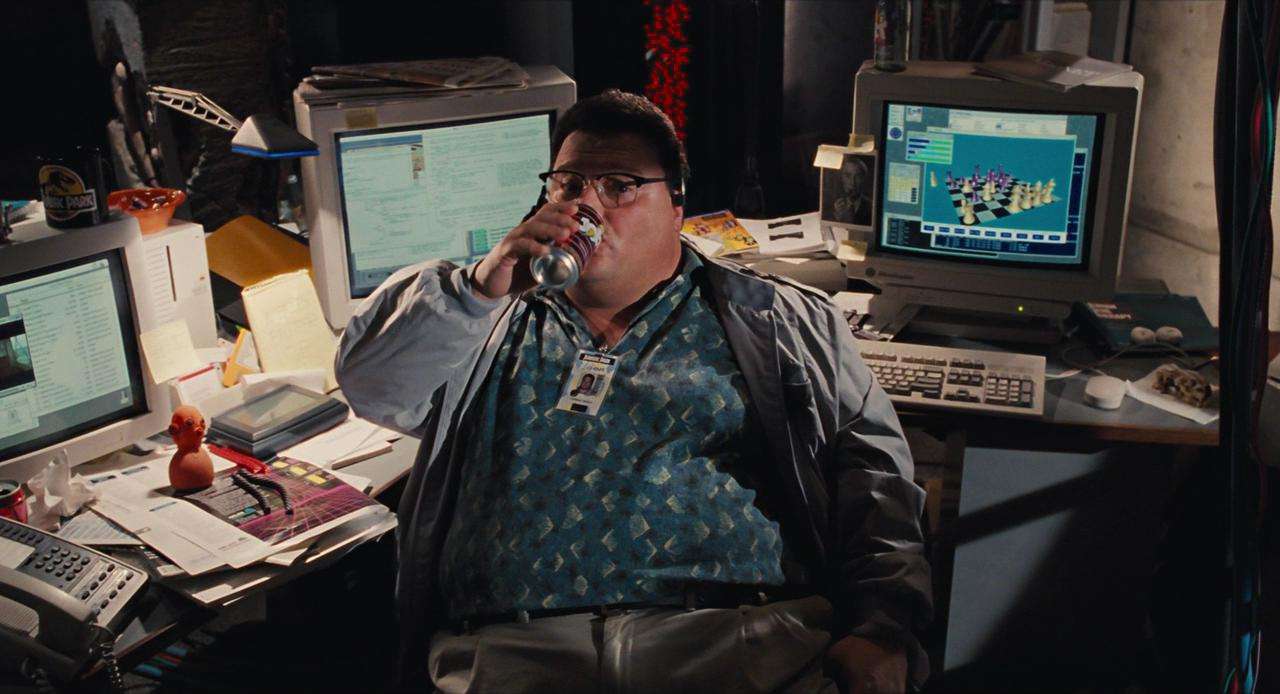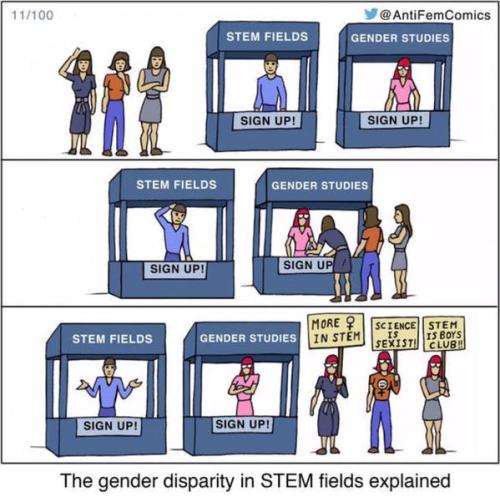Now that the Kavanaugh-scopy is over, I’d like to take a moment to reflect on one thing: This “job interview” metaphor which I think was first invoked by Lindsey Graham. There are many problems with this; as more than one Los Angeles Times reader has pointed out, “job interviews aren’t supposed to ruin lives.”
I have some experience with job interviews, on both sides of the table. When interviewing, I see my role as a senior technical adviser who, when you get right down to it, is extraordinarily unlikely to contribute anything that will change the outcome one way or the other. When I’m the one being interviewed, of course the food on my table is connected directly to that, so I put a lot more importance on that.
Being a “two century man” in the tech world, I look back on my experiences and divide them that way. There is pre-Y2K in which everything was straightforward; there is post-Y2K in which something seems to have happened and I’m still not entirely sure what it is. I’ll get to that in a bit. Let me first concentrate on the earlier time back when the year began with “nineteen.”
Life was simple. Employers wanted to know if I already had the skills; and if I didn’t have them, what would the experience be like for them as I acquired those skills. Do you know the — let’s call it — Lizard computer programming language? Five years experience with the Lizard language was obviously superior to 2 or 3 years experience. If you had zero years, maybe you knew the Newt language. Lizard is just like Newt, someone might say. He’ll pick it up real quick if he’s as smart as he seems. After assessment of experience in the relevant field, we would proceed to team-compatibility, which was really as precise an estimate as could be formed about whether you were a natural-born horse’s ass. Remember that pudgy guy in Jurassic Park who stole the frozen dinosaur embryos? They wanted to not hire that guy.
 Now my full-time jobs have lasted awhile, on average. Against the obvious expectations, this is more of a bug than a feature when it comes time to go looking, because this recruiting-world can change dramatically while I’m disconnected from it. Some people have spent twenty years or more contracting and haven’t been in any one gig for more than a year or so, which must be interesting. I lack their familiarity with the system. And so a few years after the calendar changed, I woke up from my slumber and discovered everything else changed too. This “soft skills” assessment that’s supposed to screen out double-chin guys who’d steal the dinosaur embryos, had exploded like a supernova, incinerating and consuming everything else. Fifteen years onward I’m still figuring out how to process this. The technology has become much more complicated and there are many more horror stories of enterprises hiring the wrong guy — wrong in the skills department — and having to dismiss him. And so the concern is there. But it doesn’t seem to percolate through the system. It’s like Human Resources has thrown a protective barrier around this process and imposed its own system of priorities, excluding all others.
Now my full-time jobs have lasted awhile, on average. Against the obvious expectations, this is more of a bug than a feature when it comes time to go looking, because this recruiting-world can change dramatically while I’m disconnected from it. Some people have spent twenty years or more contracting and haven’t been in any one gig for more than a year or so, which must be interesting. I lack their familiarity with the system. And so a few years after the calendar changed, I woke up from my slumber and discovered everything else changed too. This “soft skills” assessment that’s supposed to screen out double-chin guys who’d steal the dinosaur embryos, had exploded like a supernova, incinerating and consuming everything else. Fifteen years onward I’m still figuring out how to process this. The technology has become much more complicated and there are many more horror stories of enterprises hiring the wrong guy — wrong in the skills department — and having to dismiss him. And so the concern is there. But it doesn’t seem to percolate through the system. It’s like Human Resources has thrown a protective barrier around this process and imposed its own system of priorities, excluding all others.
Which isn’t necessarily wrong. You don’t want to hire a horse’s ass.
The most obvious explanation is that shared experience must have necessitated the shift. Maybe there have been a lot of horse’s-asses getting hired. Lots of dinosaur embryos stolen. I would imagine you could absorb a lot more damage hiring a guy with the correct skills but missing the necessary scruples, than the other way around.
But isn’t hiring a candidate who’s missing either one a nearly-guaranteed fail? So in that sense, sympathizing with it as a business decision, I’m still a bit baffled. I think I’m not the only one.
But my point is, throughout it all what we’re doing — the employer and employee alike — is the dance of being an adult. We’re adulting. And this essentially comes down to three words in the form of a question.
Are you serious?
The hard skills, the soft skills, the clothes you’re wearing, the company you keep, your training, your pursuit of the training. It all comes down to showing the other person you’re serious. That’s the big difference between being an adult and being a kid. For me this has become a big issue, as over the years I’ve come to turn it around, out of necessity, figuring out prospective “employers” or the recruiters who represent them aren’t serious. And from talking to others in the tech field, I’ve learned this isn’t unique to me. The emphasis has shifted away from the recruiters assessing our skills; many among them aren’t doing that at all. They assess whether we’re serious, in terms of whether we’d be a good fit for the team, and then we have to assess whether they’re serious about opening up an interview in which we’re really being considered, as opposed to what looks like an interview and isn’t one. Or whether they just want to collect names to put on a list so it looks like they’ve really gone through the field with a fine-tooth comb, when the successful candidate has been chosen already.
With the wisdom of hindsight, I can see things didn’t really change that much between the centuries. Back in my younger days when the central question was “Do You Know Lizard?” they really just wanted to know if I was serious. Do you know it already, or are you going to have to learn on our nickel, was almost a peripheral question, somewhat along the lines of “Is shipping included?” when you buy something over the Internet. Looking at it from the employer’s point of view, back in the days when I wasn’t commanding that much in terms of salary, things would work out alright even if I didn’t know Lizard or Newt or Dragon or Iguana — as long as I was serious. It was exactly like, for them, the way it is for us when the supplier has the item in stock, but has to ship it from China. If we really want the item and we know it’s right for us, we’ll pay the higher amount, and wait. And it will make good business sense to do so.
This is why adults ask each other, in these words or in other words, “Are You Serious?”
It’s not just looking for a job, or even buying & selling stuff. About this time I had to re-enter the dating field, and I discovered once again that things had changed. The sex appeal I never really thought I had in great amounts, in my youth, I must have had because there was something present-and-accounted-for before, that was missing now. But also, in my age group this faded away as a consideration. Women my age were more concerned about compatibility, which was a good thing because that’s where my concerns were as well. But what was that, exactly? Throughout the weeks and months a certain reality slowly began to sink in, that women by & large weren’t personally sure of what they wanted to find. It was as if the vision for most-desirable-male, had descended upon Planet Woman, much like a popular new fashion trend. And women wanted to be seen by other woman pursuing this type of guy, just as they’d want to be seen by other woman wearing a particular brand or style of leather boot. What I was coming to learn was that the “success” of these encounters, and their duration over this very brief window of time, were in inverse proportion to the distance between me — as each of my prospects saw me — and this ideal.
Whether I was an interesting person. How much money I made. How I spent my spare time. What I watched on the teevee (which, at that time, was nothing). What books I read. We think, when we’re available and looking, that women want to know these things so they can pick up clues and form conclusions about what makes us tick, our compatibility with each other, what their lives would be like as they share them with us. My own experiences quickly disabused me of that. From what I saw, it’s more like picking up clues about what other women will think of them when, for some period of time, you’re the one bringing them to the whatever. I found this to be frustrating, of course. It meant even my successes were defeats. The women weren’t thinking that much about what they really wanted. They were thinking way too much about what they’d be telling their girlfriends about their new fella, and whether that made for a good story that would contribute to their social position with those girlfriends.
And I see nowadays, with a new generation, as was the case back then — if a woman is really cornered with the troublesome question of “What do you want in a man?” and forced to come up with an answer — reliable as rain it will come back. “He makes me laugh.” That’s Planet Woman talk for “I don’t have any idea and figuring it out isn’t my priority right now.” That usually means they don’t want a happy life they’re sharing with a man. They put a much higher value on getting approval from other women.
 I say now, to the lads who are available and are struggling to fix what’s broken: That’s what’s broken. Fix that first. The women who are doing the selecting, like all other selecting adults, are struggling to properly assess the answer to the question “Are you serious?” And they’re confused because the most common way to resolve that is to figure out if the prospective suitor is not serious. No wonder they’re so frustrated.
I say now, to the lads who are available and are struggling to fix what’s broken: That’s what’s broken. Fix that first. The women who are doing the selecting, like all other selecting adults, are struggling to properly assess the answer to the question “Are you serious?” And they’re confused because the most common way to resolve that is to figure out if the prospective suitor is not serious. No wonder they’re so frustrated.
How do you fix that, when you don’t get to control how a woman evaluates you? Same way you fix the employment thing. You turn it around. In both areas of life, if you’re having troubles it means you’re not putting enough emphasis on assessment. You’re not spending your share of time in the magistrate’s seat. It means you have to put more thought into whether the other person is serious. Women, jobs…we may be bringing something to the table that opens a lot of doors, or we may not, but either way we’ve only got time for one of each. It’s not my place to do all the jobs or to date all the women. So grown-ups have to make a selection and that starts with figuring out if the other person is serious.
How to figure out someone isn’t serious, is something I should probably leave for a whole separate post. But it might be within scope here, and paying a decent minimal respect to the reader’s time, to burn off just one short paragraph kicking off that topic before returning to the subject at hand. In all these walks of life, we have a great many purported “adults” walking around among us who don’t really have what it takes to be an adult, because they haven’t ever gotten over that one big shock of entering adulthood. The squirming away under the microscope, while someone who’s considering entering into, or maintaining, a relationship with you tries to figure out if you’re serious. Incomplete “adults,” just tall old kids really, want that settled so that the question goes away. They want a lifetime-guaranteed affirmative-adjudication. After some deadline, if the question remains there must be something wrong with the person asking. Think in terms of Barack Obama’s, and His supporters’, seething resentment against anyone daring to question His birth certificate, or that Blasey Ford woman’s supporters and their anger against anyone who wouldn’t uncritically believe her so-called “testimony.” This is a desire for immediate and lasting approval — and a simmering grudge if it isn’t forthcoming. Adults know there is no such thing; they are comfortable with the reality that there are only two answers to are-you-serious, “no” and “pending.” That’s a very different thing from saying some residual distrust will always be there, or that no one has any real confidence in anybody else. Actually it means quite the exact opposite. Adults judge each other, they each find the other person is serious, they renew the business or marital or friendly relationship for the day, and then…they keep assessing and renewing. This is not suspicion. It is affirmation.
How this pertains to Kavanaugh, and likening his confirmation process to a “job interview”:
It’s incorrect, of course, and not for the reasons the LA Times readers say. They’re still right and Sen. Graham is still wrong. The Senate, as a whole, made an ass out of itself because it did not assess Judge Kavanaugh the way adults assess each other, trying to figure out the answer to “Are You Serious?” The democrats, who still have way too much power even though they’re in the minority, sat in judgment of the opposite. They didn’t want five seats on the Supreme Court taken up by people who are serious. They wanted more not-serious people on the bench, and fewer serious people.
This, the knowledge that has come my way tells me — both the personal anecdotes and what I’ve learned through more established and orthodox channels — is what’s wrong with our society all-around at the present time. We are pandering way too much to people who entered into adulthood, and couldn’t cope with the idea that they have to convince someone they’re serious, which of course kids don’t have to do. The trolley came off the tracks when these grown-up kids managed to get power without figuring out how to do that. And now, in dating, in real job interviews, and in politics, they’re usurping the very concept of adulthood, turning it upside-down, by sitting in judgment of who is & isn’t serious…
…and then making a point of picking the people who aren’t.









 When they make the pitch to these good people, the definitions of things don’t just whither and die. They come to an abrupt stop like Wiley Coyote hitting the side of a cliff.
When they make the pitch to these good people, the definitions of things don’t just whither and die. They come to an abrupt stop like Wiley Coyote hitting the side of a cliff. What you’re left with is the desire to belong. This is the real distinguishing characteristic between liberals and conservatives. The conservative is not a spoiled-rotten nobleman from the court of King Louis XVI who wants to keep his inheritance and his lands and his status and his privilege; it’s a frazzled shopkeeper downtown who doesn’t want bums crapping on his sidewalk. When he’s done with trying to see what he can do about that, he has to use his remaining hours attending to his business, which may or may not be profitable. But he’s got something he needs to do, and a sense of purpose to it. He belongs. That’s the issue.
What you’re left with is the desire to belong. This is the real distinguishing characteristic between liberals and conservatives. The conservative is not a spoiled-rotten nobleman from the court of King Louis XVI who wants to keep his inheritance and his lands and his status and his privilege; it’s a frazzled shopkeeper downtown who doesn’t want bums crapping on his sidewalk. When he’s done with trying to see what he can do about that, he has to use his remaining hours attending to his business, which may or may not be profitable. But he’s got something he needs to do, and a sense of purpose to it. He belongs. That’s the issue. The
The  Now my full-time jobs have lasted awhile, on average. Against the obvious expectations, this is more of a bug than a feature when it comes time to go looking, because this recruiting-world can change dramatically while I’m disconnected from it. Some people have spent twenty years or more contracting and haven’t been in any one gig for more than a year or so, which must be interesting. I lack their familiarity with the system. And so a few years after the calendar changed, I woke up from my slumber and discovered everything else changed too. This “soft skills” assessment that’s supposed to screen out double-chin guys who’d steal the dinosaur embryos, had exploded like a supernova, incinerating and consuming everything else. Fifteen years onward I’m still figuring out how to process this. The technology has become much more complicated and there are many more horror stories of enterprises hiring the wrong guy — wrong in the skills department — and having to dismiss him. And so the concern is there. But it doesn’t seem to percolate through the system. It’s like Human Resources has thrown a protective barrier around this process and imposed its own system of priorities, excluding all others.
Now my full-time jobs have lasted awhile, on average. Against the obvious expectations, this is more of a bug than a feature when it comes time to go looking, because this recruiting-world can change dramatically while I’m disconnected from it. Some people have spent twenty years or more contracting and haven’t been in any one gig for more than a year or so, which must be interesting. I lack their familiarity with the system. And so a few years after the calendar changed, I woke up from my slumber and discovered everything else changed too. This “soft skills” assessment that’s supposed to screen out double-chin guys who’d steal the dinosaur embryos, had exploded like a supernova, incinerating and consuming everything else. Fifteen years onward I’m still figuring out how to process this. The technology has become much more complicated and there are many more horror stories of enterprises hiring the wrong guy — wrong in the skills department — and having to dismiss him. And so the concern is there. But it doesn’t seem to percolate through the system. It’s like Human Resources has thrown a protective barrier around this process and imposed its own system of priorities, excluding all others. I say now, to the lads who are available and are struggling to fix what’s broken: That’s what’s broken. Fix that first. The women who are doing the selecting, like all other selecting adults, are struggling to properly assess the answer to the question “Are you serious?” And they’re confused because the most common way to resolve that is to figure out if the prospective suitor is not serious. No wonder they’re
I say now, to the lads who are available and are struggling to fix what’s broken: That’s what’s broken. Fix that first. The women who are doing the selecting, like all other selecting adults, are struggling to properly assess the answer to the question “Are you serious?” And they’re confused because the most common way to resolve that is to figure out if the prospective suitor is not serious. No wonder they’re